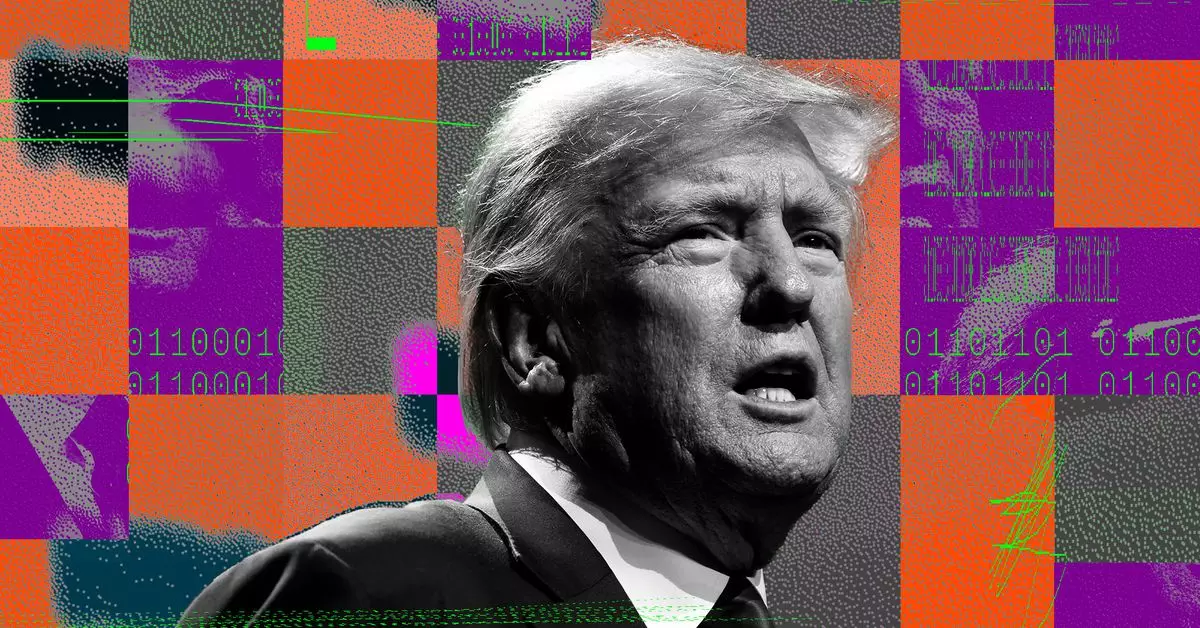In the midst of ongoing tensions surrounding social media and national security, a significant legal battle has emerged regarding TikTok, the popular video-sharing platform. The case highlights broader concerns over data privacy, foreign influence, and the role of the government in regulating digital platforms. President-elect Donald Trump has taken a bold stance, appealing to the Supreme Court to intervene and grant him the authority to negotiate a solution that could avert a ban on TikTok in the United States. This move is emblematic of Trump’s complex relationship with the app: one rooted in skepticism and transformed by its electoral utility.
The essence of Trump’s request lies in a recently filed amicus brief, where he argues that his unique position as the incoming president endows him with the necessary political mandate and negotiation prowess to broker a deal. He asserts that the current legislative climate surrounding TikTok, particularly the bill passed by Congress, raises significant First Amendment concerns by restricting users’ access to a platform that has become a fixture in American social interactions. Trump’s strategy suggests a blend of pragmatism and opportunism—leveraging his influence to safeguard the platform while simultaneously addressing national security fears.
The Supreme Court’s acceptance to consider the case reflects the immediate urgency of the situation, particularly with a looming January 19th deadline. This deadline is pivotal, as it mandates the president to decide on the enforcement of the new law unless a negotiation path is clearly laid out. Trump’s appeal to stay this deadline indicates his intent to buy time, implicitly arguing that negotiated settlements could ultimately render judicial involvement unnecessary, thus sidestepping complex constitutional debates.
While Trump has not elaborated on the specifics of a potential deal, it likely involves significant operational adjustments for TikTok, including divesting a substantial share of its ownership from its Chinese parent company, ByteDance. The notion of requiring such a divestment is not new; it has been a recurring theme in discussions surrounding foreign-owned technology platforms viewed as threats to national security.
The implications of Trump’s appeal extend beyond the legal realm. By positioning himself as a negotiator, he reinstates TikTok’s relevance not just as a social media tool but as a means of political communication and expression. Trump’s rhetoric surrounding freedom of speech resonates with those who view TikTok as a vital outlet for diverse views and engagement, framing the debate around the potential ban as one steeped in the principles of democratic discourse.
The political climate remains charged regarding TikTok. Even as Trump attempts to negotiate a resolution, there is considerable pressure from various lawmakers for stringent measures against the app. Notable figures like Mitch McConnell and Ro Khanna have publicly supported actions against TikTok, emphasizing national security risks and potential foreign espionage. Their petitions to the Supreme Court reflect a broader bipartisan concern that transcends party lines.
The situation complicates further as public sentiment towards TikTok remains largely favorable among younger demographics, many of whom utilize the platform to express creativity and cultural trends. Trump’s changing stance—from advocating for a ban to suggesting that TikTok might deserve to remain operational—indicates a nuanced shift in perception, possibly influenced by TikTok’s role in mobilizing voters and engaging new audiences during his campaign.
As the deadline approaches, Trump’s bid to navigate the legal and political complexities surrounding TikTok exemplifies the intersection of technology, governance, and public engagement. His ability to sway opinions and shape negotiations may determine not just the fate of TikTok in the United States but also signal broader implications for how government regulates digital spaces in the face of evolving societal norms. In this critical juncture, the outcome of the Supreme Court’s deliberation could redefine the contours of digital engagement for millions, as the nation grapples with fundamental questions about privacy, expression, and the power dynamics of social media platforms.

